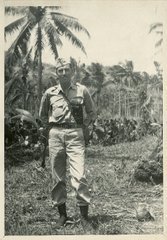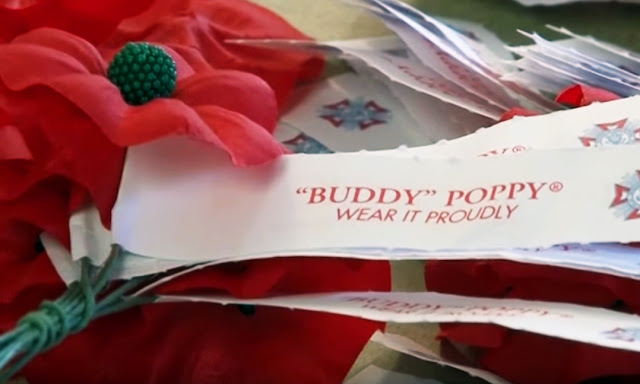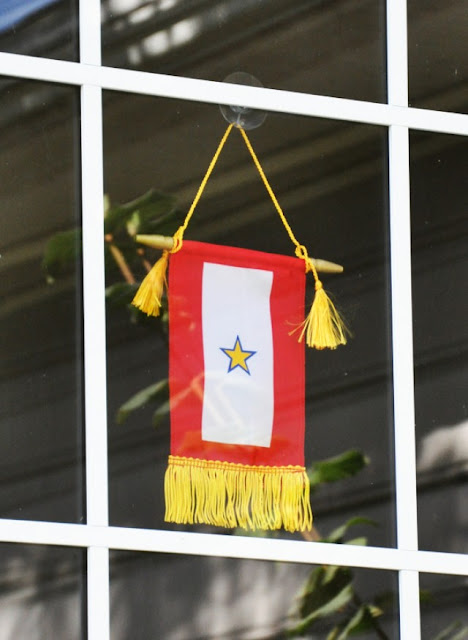This year for Veterans
Day instead of my usual post on the history and meaning of
the observation the World War I Armistice on November 11, 1918 I
thought I would resurrect an old chestnut that I first read as a Chalice
Lighting to open services at the old Congregational Unitarian
Congregation in Woodstock, Illinois about 2000. I read it subsequently when the congregation moved
and was renamed the Tree of Life UU Congregation in McHenry. It was included in my 2004 Skinner House
collection, We Build Temples in the Heart.
It was based on
the memories of a boy from Cheyenne in the 1950s. Reviewing it now, I am struck that the World
War II is fast fading away.
In not too many years the last of them will gone, just as
I remember the passing of the last World War I vet at the age of 110 in
2011. The cohort of their children,
the so-called Baby Boomers are fast aging as well. I am 72 and friends with parents who
served in what Studs Terkel called the Last Good War are about
the same.
It occurs to me
now that my grand children won’t understand much of what I wrote
about. They live in a different world. World War II and post-war America are
decades older for them than the Great War was for me. Neither will they know or care about our Vietnam
War choices obliquely referenced in the last lines.
Pictures,
Poppies, Stars and Generations
We knew war.
Somewhere in
every home a handsome young man
peered from a tinted photograph,
overseas cap at a jaunty angle
or the fifty-mission
crush
or the crisp, square
beanie of a gob.
usually someone’s Dad in some other
life,
but sometimes the ghost of someone
frozen in time,
caught in that picture like a fly in
amber
while bloody shreds were left draped
on barbed wire
ten feet from the high water on an
anonymous beach,
or splattered on the glass of the
ball turret
of a Mitchell bomber spiraling for
an appointment
with a German potato field,
or bobbing in a sea of burning oil,
naked and parboiled.
We knew
pity.
The veterans
in neat blue uniforms,
sleeves pinned to shoulders, ears
shot away,
noses burned off, faces twitching,
fistfuls or red paper poppies in one
hand,
shaking white cans for nickels with
the other.
on every street corner, May and
November
and no decent man or woman passed
without emptying pockets of change,
twisting flowers into buttonholes,
on to purse straps,
without ever looking the peddler in
the eye.
We knew
death.
Inside
scrapbooks with brittle pages and fading ink,
kept far up in the front hall closet
behind hatboxes,
surrounded by last winter’s scarves
and mittens,
between the leatherette boards bound
by black shoelaces,
amid the rations coupons, V-mails,
postcards from exotic ports, Brownie
snapshot,
campaign maps, and yellowed
clippings,
a small fringed flag,
white edged in red and
blue,
a gold star in the
center.
In the
neighborhood we looted footlockers and duffel bags,
saved our allowances for forays to
the Army/Navy Store,
outfitted ourselves in helmet
liners, webbed belts,
canteens and mess kits, cast–off
khaki and drab,
and amid the prairie
burrs and grasses,
between the wild rose
hedge and lilac caves,
on top of the car port
in the window wells,
every summer day we
tried to sort glory from horror.
We knew war
and pity and death—
we thought.
And then—suddenly—it
was our turn for real.
—Patrick Murfin





No comments:
Post a Comment